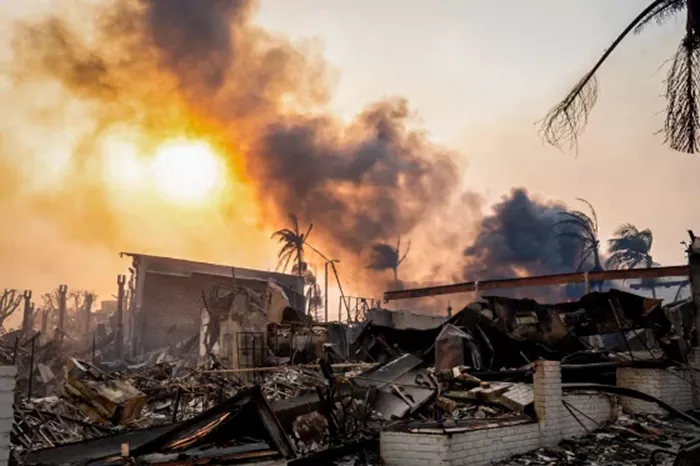A recent study reveals that climate change-driven wildfires have caused thousands of deaths and billions of dollars in economic damage in the United States. The research, published in Nature Communications Earth & Environment, highlights the severe health and financial costs linked to wildfire smoke exposure.
Key Findings
Annual Death Toll: From 2006 to 2020, climate change contributed to approximately 15,000 deaths due to wildfire smoke. The number of deaths varied each year, ranging from 130 to 5,100, with states like Oregon and California experiencing the highest tolls.
Economic Impact: The financial cost of wildfire smoke during the same period is estimated to be around $160 billion.
Particulate Matter: Wildfire smoke contains fine particles (PM2.5) that are harmful when inhaled. These particles can worsen existing health conditions and cause chronic diseases, particularly in vulnerable groups like children, the elderly, pregnant individuals, and outdoor workers. The Health Effects Institute has estimated that PM2.5 causes about 4 million deaths worldwide annually.
The Role of Climate Change
The study’s authors, including Dr. Nicholas Nassikas, a Harvard Medical School physician, emphasize the role of climate change in intensifying wildfires. Warmer temperatures and drought conditions—key consequences of global warming—create perfect conditions for wildfires to grow in size and frequency.
When wildfires burn in urban areas, they also produce toxic pollutants from burned materials like cars, adding to the dangers posed by wildfire smoke.
Concerns and Criticisms
While the study’s findings are alarming, some experts have raised concerns about the study’s methodology and conclusions:
Smoke and Wind Factors: Professor Marshall Burke from Stanford University notes that linking the burned areas to smoke levels is challenging, as wind patterns can vary, affecting the spread of wildfire smoke.
Non-Climate Factors: Patrick Brown from Johns Hopkins University argues that the study downplays the role of non-climate factors in wildfires. He suggests that while reducing carbon emissions is crucial, other measures like fuel breaks and prescribed burns should also be part of the solution.
Health and Safety Measures
As wildfires and their harmful smoke continue to increase, experts stress the importance of both immediate and long-term actions to protect public health. Public health initiatives, improved land management practices, and stricter regulations on emissions are necessary to mitigate the risks associated with wildfire smoke.
Dr. Nassikas points out that while actions at the local and national levels can help, addressing the root cause—greenhouse gas emissions—is essential to reduce the frequency and severity of wildfires.
Conclusion
This study brings crucial awareness to the deadly consequences of climate change-induced wildfires and highlights the urgent need for both mitigation and adaptation strategies. Without serious efforts to curb climate change, the health impacts of wildfire smoke are expected to worsen in the coming years.
Read more:
- Study Shows Doctors Often Dismiss Women’s Pelvic Pain, Study Finds
- GP-Led Talking Therapy Helps Reduce PTSD After Critical Illness
- New Heart Rate Measure May Predict Future Memory Decline


